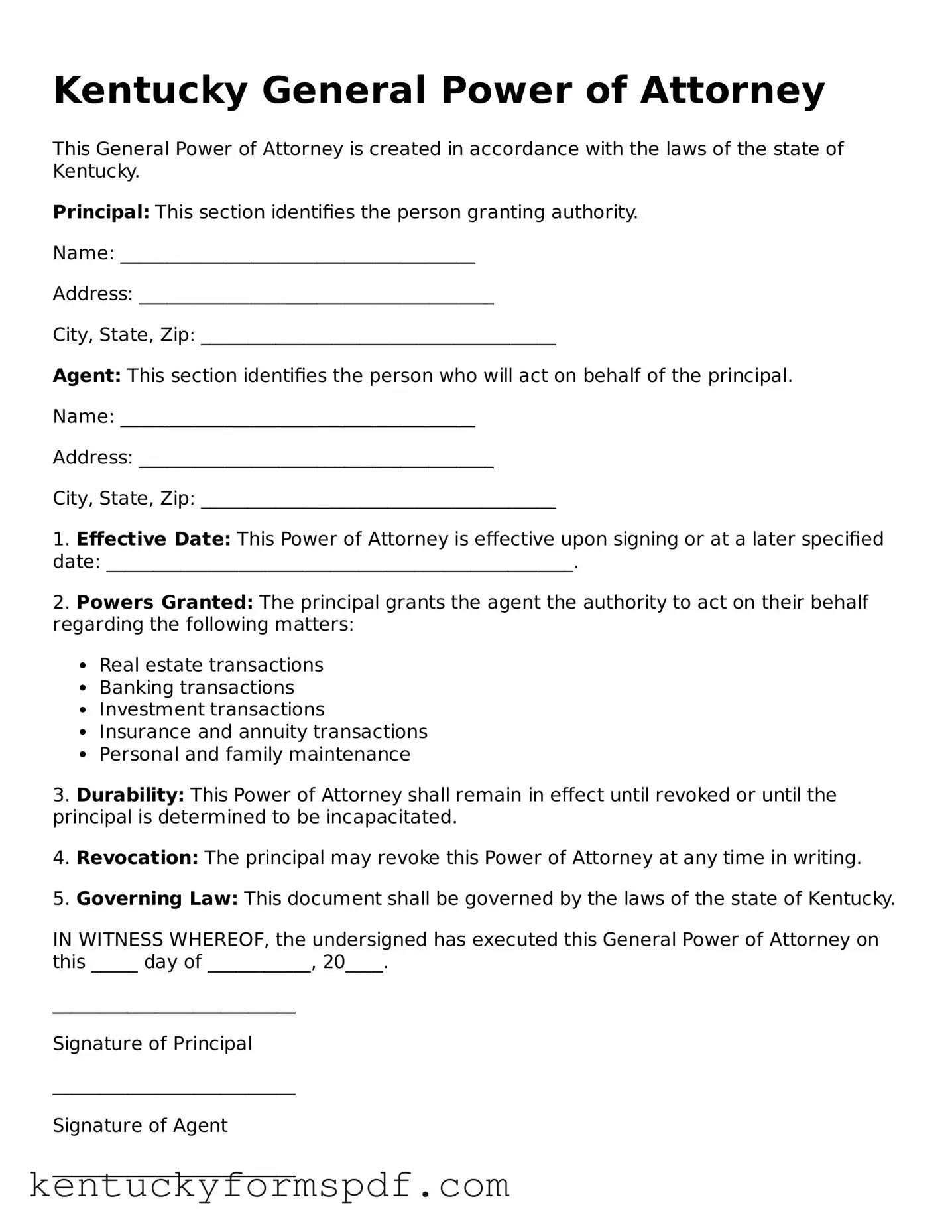The Kentucky General Power of Attorney form shares similarities with the Durable Power of Attorney. Both documents allow an individual, known as the principal, to appoint an agent to make decisions on their behalf. However, the key difference lies in durability. The Durable Power of Attorney remains effective even if the principal becomes incapacitated, while the General Power of Attorney typically ceases to be valid under such circumstances. This distinction is crucial for individuals seeking to ensure their financial and medical decisions are managed even in times of incapacity.
Another document comparable to the General Power of Attorney is the Medical Power of Attorney. This form specifically grants an agent the authority to make healthcare decisions for the principal. Like the General Power of Attorney, it requires the principal to designate an agent, but it focuses exclusively on medical and health-related matters. This document is vital for those who want to ensure their healthcare preferences are honored when they are unable to communicate their wishes.
The Limited Power of Attorney is also similar, as it allows the principal to grant specific powers to an agent. Unlike the General Power of Attorney, which provides broad authority, the Limited Power of Attorney restricts the agent's powers to particular tasks or decisions. This can be useful for individuals who need assistance with a specific transaction, such as selling a property, while retaining control over other aspects of their affairs.
The Springing Power of Attorney is another relevant document. It becomes effective only under certain conditions, typically when the principal becomes incapacitated. This is different from the General Power of Attorney, which is effective immediately upon signing. The Springing Power of Attorney provides a safeguard for those who wish to maintain control over their affairs until a specific triggering event occurs.
For those seeking to understand the nuances of ownership transfers, a crucial aspect is the comprehensive Bill of Sale document. This form not only formalizes a sale but also serves as vital proof in any potential disputes that may arise post-transaction.
A Trust Agreement can also be compared to the General Power of Attorney. While a Trust Agreement involves transferring assets into a trust for management by a trustee, it serves a similar purpose in terms of asset management and decision-making. Both documents aim to ensure that an individual's wishes regarding their assets are carried out, but the trust is often more comprehensive, providing for long-term management and distribution of assets.
The Advance Directive is another document that aligns with the General Power of Attorney, particularly in healthcare contexts. It outlines an individual's preferences for medical treatment and appoints an agent to make decisions if the individual is unable to do so. While the General Power of Attorney can cover a broad range of decisions, the Advance Directive focuses specifically on healthcare, making it a crucial component of comprehensive planning.
The Fiduciary Agreement is also similar, as it establishes a relationship where one party manages the affairs of another. This agreement often includes the appointment of a fiduciary, who has a legal obligation to act in the best interest of the principal. While a General Power of Attorney grants authority to an agent, a Fiduciary Agreement formalizes the responsibilities and duties of the fiduciary, emphasizing accountability and trust.
Lastly, the Authorization for Release of Information document shares similarities with the General Power of Attorney. This document allows an individual to authorize another person to access specific information, such as medical records or financial data. While it does not grant decision-making authority like the General Power of Attorney, it facilitates communication and information sharing, which can be essential for effective management of an individual’s affairs.

